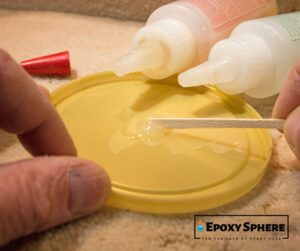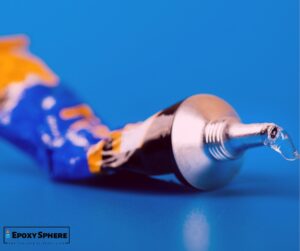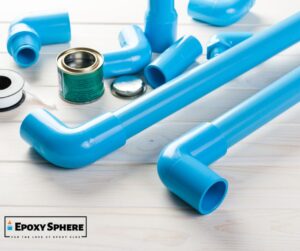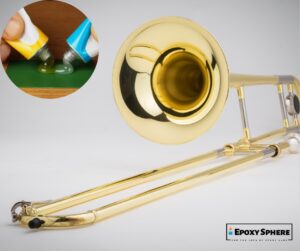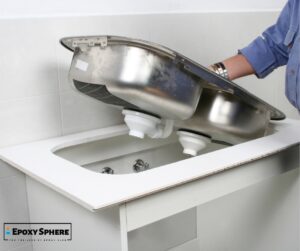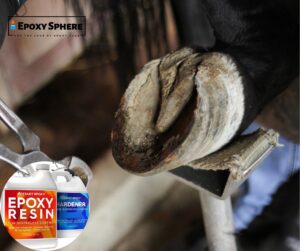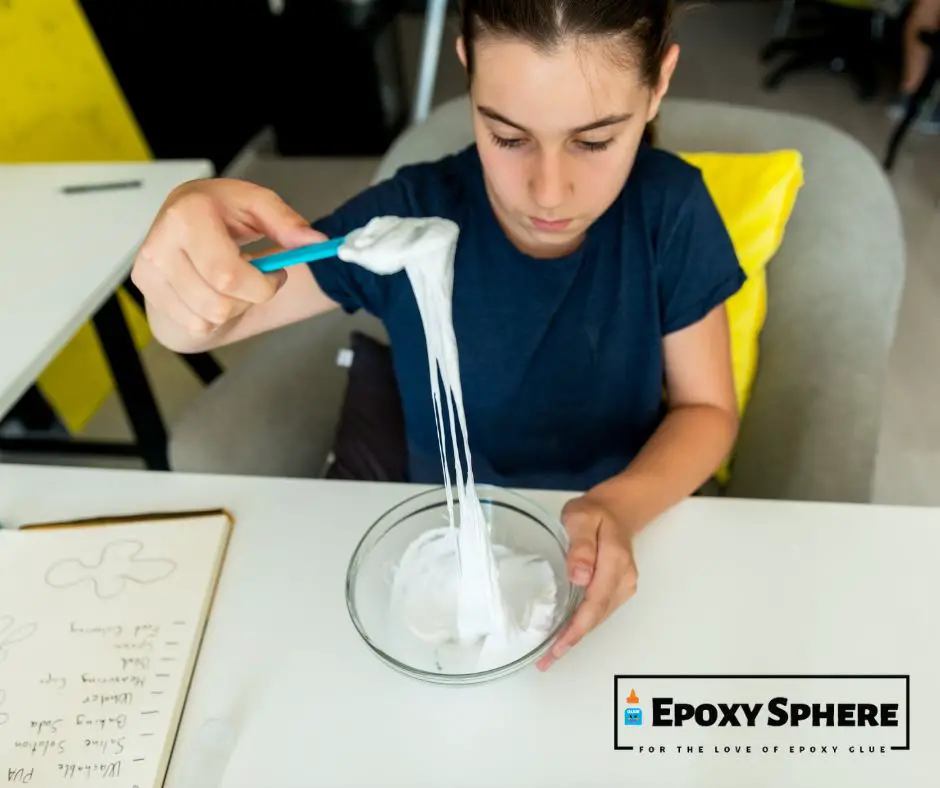
Epoxy glue is one of the strongest bonding glues there is. It can bind together materials that aren’t meant to be joined. And while this is good, it often presents a challenge when there is a spill, or you wish to unglue what you have joined.
To mitigate such situations, it’s best to know how to dissolve epoxy glue. You have a few options for dissolving epoxy, but I’ll show you which ones work best.
What Is The Best Way to Remove Epoxy?
No one answer fits all when it comes to the best way to dissolve epoxy. This is because what method will work best depends on the type of surface you want to dissolve your epoxy from.
Epoxy glue is a two-part adhesive, meaning that you must mix the resin and hardener together before using it. It is a powerful adhesive, but only when it’s mixed correctly. Finding the right way is crucial, as using the wrong method can lead to irreparable damage on your surface.

Ways to Dissolve Epoxy Glue
Thankfully, regardless of the surface, your epoxy glue is on, you can dissolve it to eliminate the bond made. Here are a couple of ways you can use to achieve this:
Using Isopropyl alcohol
Isopropyl alcohol is regarded as the best solvent for epoxy by many, and for good reasons. This compound is a suitable solvent for epoxy because it is a polar solvent and can dissolve both polar and nonpolar solutes. Isopropyl alcohol, also known as isopropanol, is another alternative available to you for removing an uncured epoxy resin.
Using Acetone
Acetone is a suitable solvent for epoxy resin. It’s often found in nail polish remover and can be purchased at any store that sells beauty products. If you don’t have acetone on hand, you may already have some in your house. However, using acetone can have unwanted side effects on your surface.
Using Vinegar
Vinegar is an excellent solvent for most things. So it’s no surprise that vinegar will dissolve epoxy glue. You can use any white vinegar or apple cider to dissolve it as long as you have enough time for the process to work its magic.
You must soak the hardened epoxy in vinegar for a couple of hours. If you need a much faster method, try using isopropyl alcohol instead of vinegar; it’ll cut through epoxy with ease in just 30 minutes.
Citrus-based waterless hand cleaners
Citrus-based waterless hand cleaners are ideal for removing epoxy glue. Thankfully, these products are readily available in stores and online for purchase. The best part, they are not expensive, and if used on hardened epoxy on your skin, they won’t irritate it.
Db the solution to the affected area and wash it off with water. Citrus oils will help dissolve the epoxy glue while you scrub it away. Some have suggested using a cut lemon to help remove the glue. However, this is unverified, and you can be sure of your result.
Epoxy Remover
Epoxy remover is a unique adhesive remover designed to remove any epoxy residue from surfaces. This solution is suitable for smaller surfaces as well as large ones.
Adhesive Remover combines the power of several solvents, such as methylene chloride, n-methyl pyrrolidone (NMP), and organic acids, with a blend of refined oils to break the rigid bonds of epoxy. Wait 1-2 minutes before rubbing the area with a small piece of cloth until all residue is gone.
Universal Thinner
If you’re lucky, your epoxy glue will be sold with a thinner. This can make using it much easier as a dissolving agent is already at your disposal. If not, you can purchase a universal thinner at any convenience store, hardware store, or home improvement center.
Alternatively, use a solution of paint thinner and denatured alcohol to remove the cured epoxy resin. Mix both and apply them to the cured epoxy to dissolve it.
Denatured Alcohol / Ethanol
If your epoxy is not fully cured, then denatured alcohol will be your best solvent. Denatured alcohol is made from ethyl alcohol mixed with chemical additives to make it undrinkable. We can also use it as fuel for camp stoves and lanterns.
Apply denatured alcohol richly to a cloth and wipe the affected area for a short time. Denatured alcohol is well suited for an epoxy resin that is not yet fully cured because it does not dissolve the glue’s polymer chains but softens them enough to separate again after being wiped off.
Heat Gun / Putty Knife
You can use a heat gun to dissolve epoxy glue. You might also use a hair dryer, but there is a danger of you overheating the surface, hence damaging it.
This will help you soften the resin so that the mass can be removed mechanically afterward. Most epoxy resins soften from 200 degrees (93C). For a higher degree of success, use a hot air gun with temperature control. However, keep in mind that the resulting temperatures can cause burns, so be aware of your safety and wear gloves.
Reasons to Want to Dissolve Epoxy
There are many reasons why you might want to dissolve epoxy. Here are the most popular:
Excess application
The most obvious is when you have excess epoxy on your hands or workspace and want to get rid of it. And if you’ve applied more epoxy than you need, a simple solution is for you to dissolve the excess epoxy glue. The more excess epoxy that is dissolved, the easier it will be for your project to come together.
Wrongful application
When something goes wrong with a project, most of the time, it is because of a lack of knowledge or experience. And if you have wrongly applied your epoxy, dissolving it is the next best possible option available to you.
To separate joined objects
You may have used epoxy to glue two objects together, and now you’re wondering how to separate them. Regardless of whether your epoxy has cured or not, you can consider dissolving it with any of the steps above.
Conclusion
When it comes to dissolving epoxy, you have to have patience. Irrespective of the method you choose to use, they will not immediately dissolve the epoxy glue. This is because the process has to work its way into the glue and eventually take effect. You may have to repeat the operation several times until all of your epoxies have been dissolved.
Now you know how to dissolve epoxy glue most efficiently. You must follow all these steps so that your project goes as planned and you don’t have any issues with it later down the road.

Hi, This is John Davis. After years of working in the construction industry, I decided to create a website that would provide people with information about glue and its exceptional uses. I hope You find it useful

